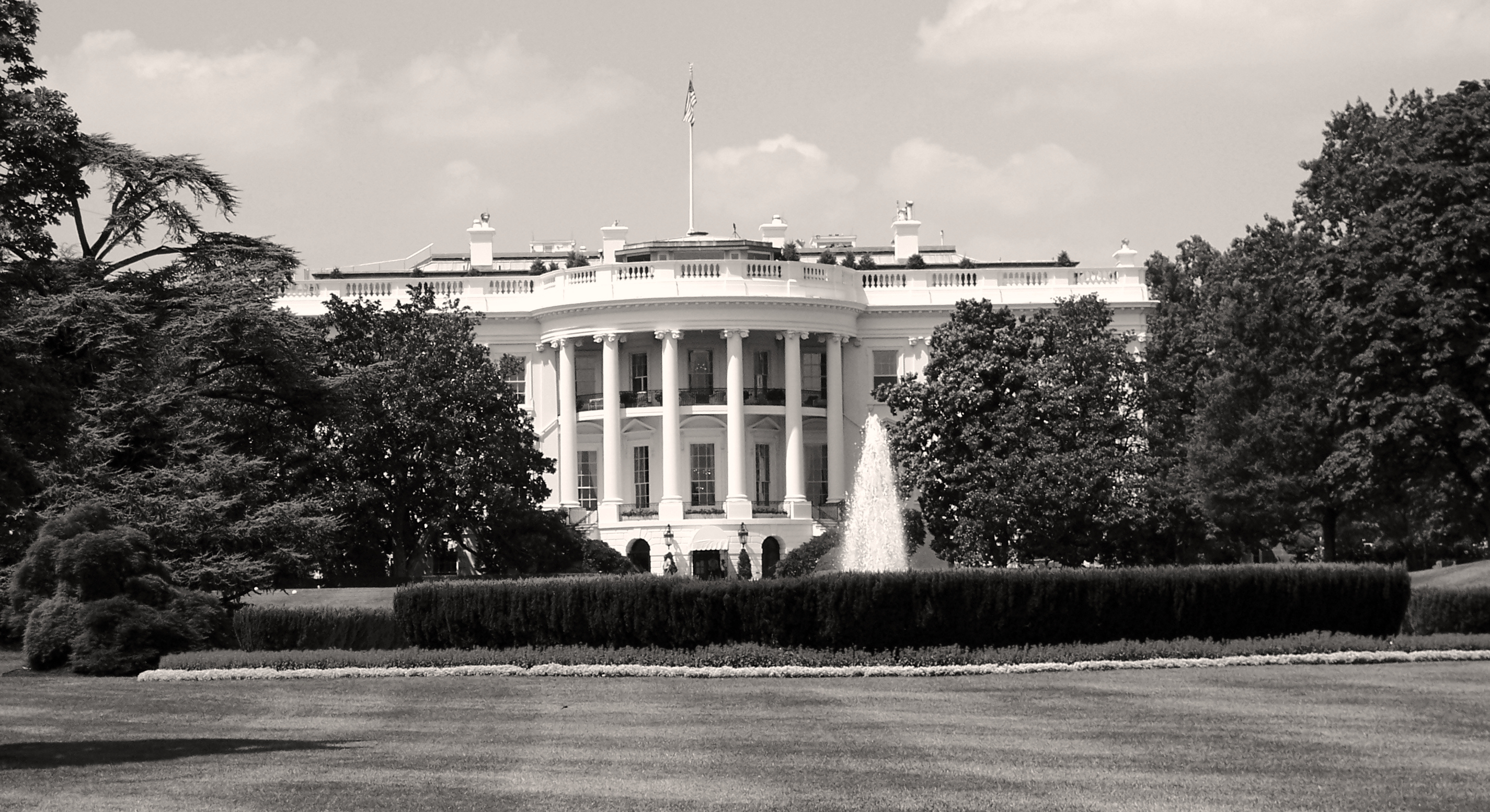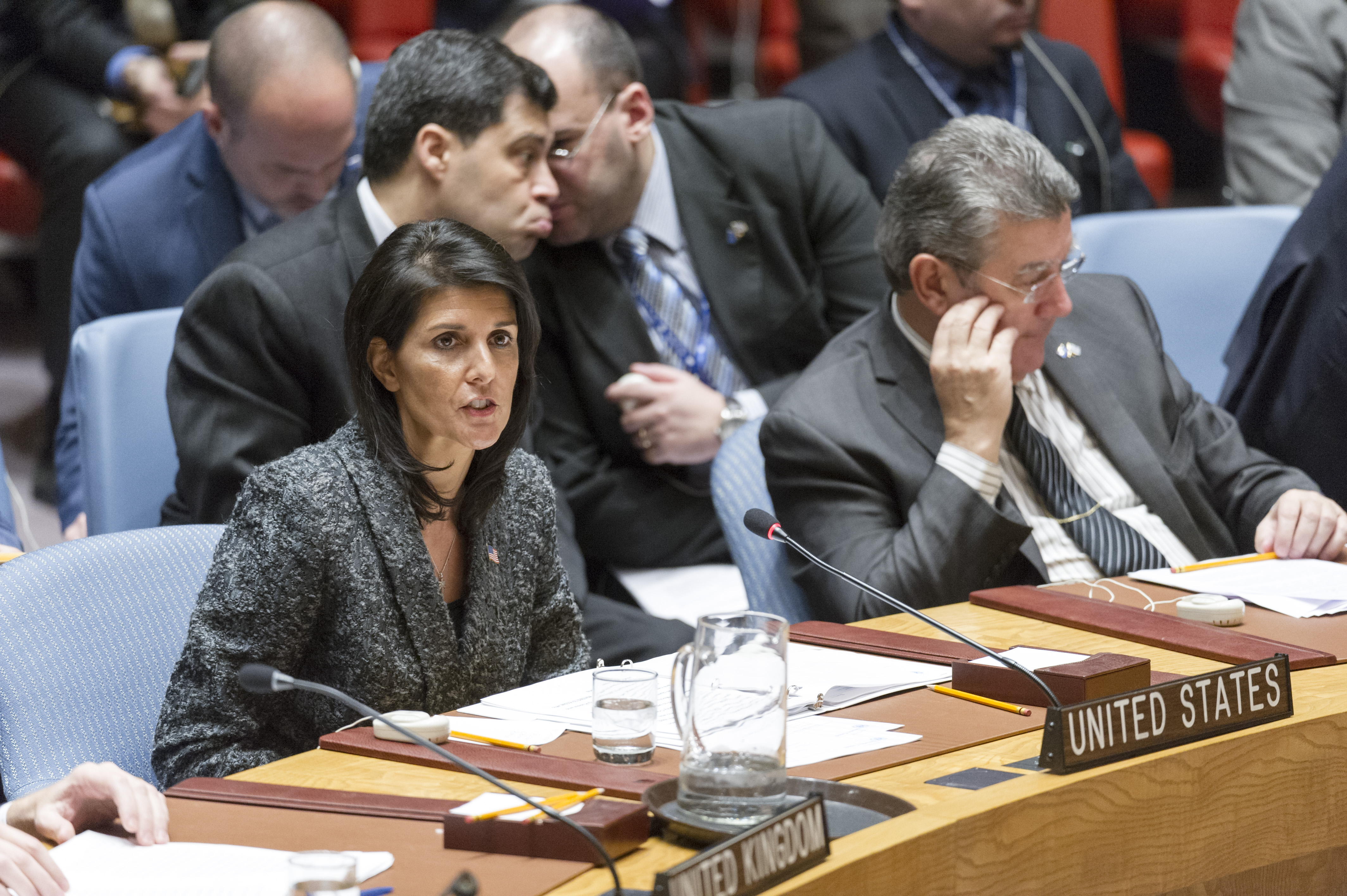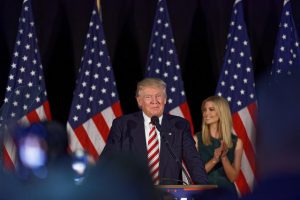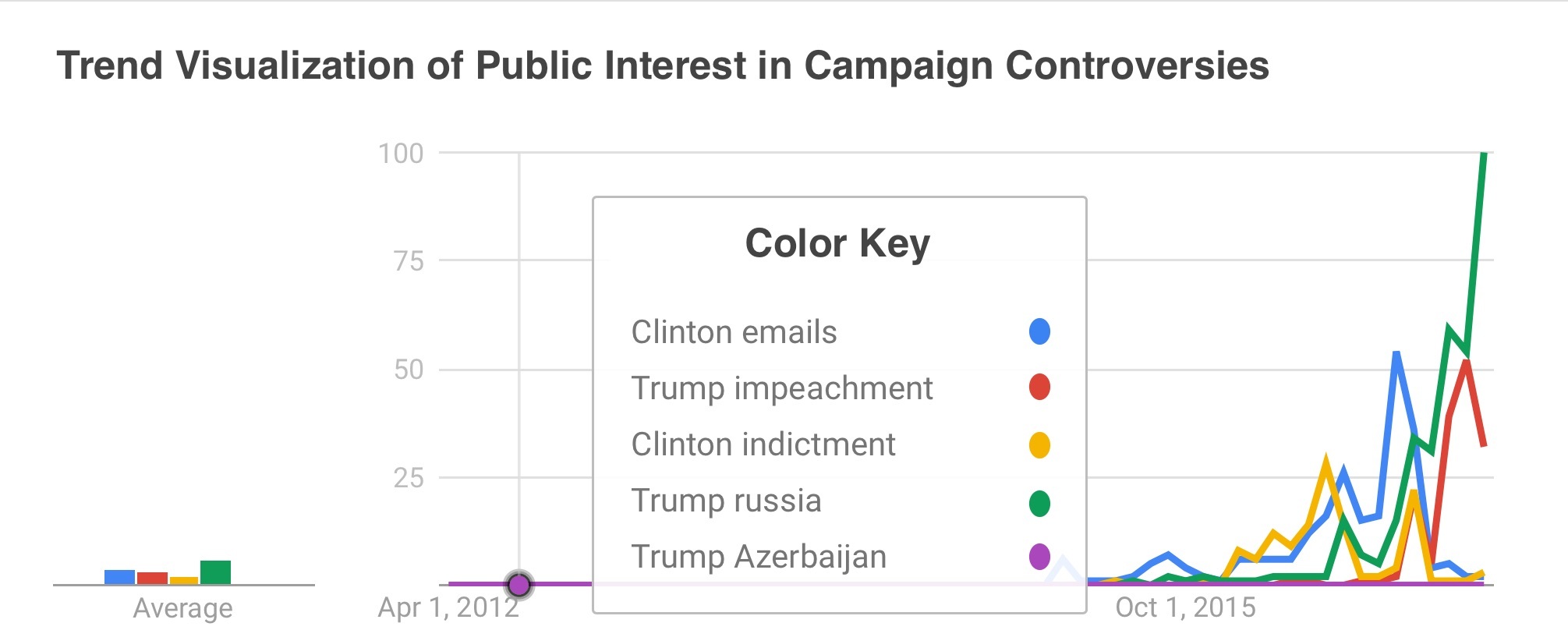Something’s rotten in the state of Denmark…Kremlin and White House.
It’s becoming increasingly clear that we’re beyond the point of asking “if” the current administration has been compromised in some way. A more accurate question would be, “To what extent is the administration compromised?”
It’s important to establish what is meant by the term “compromised.” With regards to this article, “compromised” describes a group or individual in a position beholden to a foreign power or actor. Any number of reasons could motivate this “fealty”: financial, criminal, mutual benefit, ignorance, or, more likely in this case, a combination of the four.
What about the allegations concerning golden showers at the Ritz-Carlton in Moscow and St. Petersburg? Yes, those could be true. But they could also be strategically placed disinformation by Kremlin double-agents to confuse and dilute the risk posed by some of the potentially more damaging allegations.
If it is indeed planted disinformation, how would it serve a strategic purpose for Russian interests? Consider the other claims: multiple meetings between Trump surrogates and Kremlin intelligence officials, alleged collusion over the GOP stance on American military aid to Ukraine, financial ties between known, close associates of Vladimir Putin and Donald Trump.
On January 10, Buzzfeed published the—then-unverified—dossier of material compiled by former British intelligence officer Christopher Steele. As has been widely reported, the collection of pages contained a mix of details and allegations that Russia had salacious, damaging or otherwise compromising leverage over then-President-elect Trump.
The publication of this dossier bred a firestorm of criticism and skepticism aimed at Buzzfeed, CNN, and Steele—who has since taken his family into hiding. However, amidst all the noise in the American press, the BBC published findings the very next day that seemed to verify aspects of the dossier secondarily through a source within the United States Intelligence Community.
For their part, the Trump associates mentioned in the dossier—along with Trump himself—deny any association with Russia and any form of contact with Russian government officials during the presidential campaign. We now know that to be untrue as Michael Flynn held numerous conversations with Russia’s ambassador to the U.S. In one instance, Flynn phoned the Ambassador multiple times on the day President Obama announced the expulsion of some Russian diplomats and the seizure of Russian state property on the U.S. East Coast.
Interestingly, Putin had an uncharacteristically measured and restrained response, saying he would wait to see what became of the incoming Trump administration. Of equal interest is the timing of Michael Flynn calls to the Russian ambassador. Some time after these revelations, it was reported that the U.S. has signals intelligence (SIGINT) confirming that Flynn had repeated conversations with Kislyak before election day.
Michael Flynn: Was He a Part of the Gang or a Lone Wolf?
This was the question posed by many following his disgraced resignation or firing. Flynn was not, in fact, acting alone. Months before the election, it became public knowledge that Trump’s former campaign manager, Paul Manafort, was a known associate of ex-Ukrainian President Viktor Yanukovych. Yanukovych is alleged to have earmarked over $12 million for payment to Manafort following his role in securing (albeit briefly) the Ukrainian presidency for Yanukovych and his pro-Russia Party of Regions.
Manafort resigned after this information came to light during the campaign, but remained as an unofficial advisor. Recently reported—and subsequently confirmed, by Manafort—was the existence of text messages on his daughter’s phone; they were allegedly sent by a pro-Russia Ukrainian politician and oligarch and intended for Manafort. The messages contained blackmail threats that essentially said the information would be released if Manafort did not comply with the blackmailer.
For his part, Paul Manafort flatly denies that the extortion claims are valid while maintaining his confirmation of the existence of the threatening text messages. Alone, these allegations do not prove that Flynn acted as an accomplice. Manafort is alleged to have played a part in crafting an agreement to cease hostilities in Ukraine that were delivered to then-National Security Advisor Flynn.
 IN THE Photo: U.S. Permanent Representative to the United Nations Nikki Haley has publicly condemned Russian aggression in Ukraine. This condemnation has not been supported with action from the White House. PHOTO CREDIt: RICK BAJORNAS/ UN PHOTO
IN THE Photo: U.S. Permanent Representative to the United Nations Nikki Haley has publicly condemned Russian aggression in Ukraine. This condemnation has not been supported with action from the White House. PHOTO CREDIt: RICK BAJORNAS/ UN PHOTO
This proposal hands Russia almost exactly what it wants: uncompromised influence over territories inhabited by large numbers of ethnic Russians—at the expense of Ukrainian sovereignty. Believed to have played a role in this agreement is the pro-Russian Ukrainian billionaire Sergiy Leshchenko. To date, nothing has come of this proposal; it was submitted by a group of private citizens. The Trump administration has issued strong condemnations of Russia through surrogates like UN Ambassador Nikki Haley.
However, the intrigue doesn’t end there. Attorney General Jeff Sessions was also found to have had conversations with Ambassador Kislyak. These discussions are believed to be related to the Republican Party’s position on sending lethal vs. non-lethal aid to Ukrainian military units fighting Russian-backed rebels in Eastern Ukraine.
He also failed to disclose these conversations during his Senate confirmation hearings—not that he was asked. Following a question from Senator Al Franken about whether he [Sessions] would recuse himself from an investigation, Sessions provided a two-part response.
First, he flatly denied having any knowledge of communications between the Trump campaign and Russian government officials. He then offered an unprompted denial that he had any interaction or communications with “the Russians.”
Here’s the original exchange:
Franken: CNN just published a story alleging that the intelligence community provided documents to the president-elect last week that included information that quote, ‘Russian operatives claimed to have compromising personal and financial information about Mr. Trump.’
These documents also allegedly say quote, ‘There was a continuing exchange of information during the campaign between Trump’s surrogates and intermediaries for the Russian government.’ Now, again, I’m telling you this as it’s coming out, so you know.
But if it’s true, it’s obviously very serious and if there is any evidence that anyone affiliated with the Trump campaign communicated with the Russian government in the course of this campaign, what will you do?
Sessions: Senator Franken, I’m not aware of any of those activities. I have been called a surrogate at a time or two in that campaign, and I didn’t have — did not have communications with the Russians, and I’m unable to comment on it.
While a conclusion shouldn’t be based on his denying actions before he was even accused of them, the fact that Sessions answered in that manner when asked an entirely different question may be telling of what’s to come.
Information Overload
Whether by strategy or by accident, the news content, media coverage, and social media outcry in response to these controversies serve to deflect away and dilute coverage of gravely illicit activities. In a “typical” conservative-dominated political climate, controversial immigration orders, transgendered bathroom bans, and reduced access to safe abortions aren’t uncommon for a Republican administration, but certainly, shouldn’t be ignored.
Related article: “TRUMP AND THE MYTH OF CHAOS IN EUROPE“
But this isn’t a typical political climate by any means. The U.S. is rapidly developing into both a constitutional and national security crisis. Eventually, this scandal will hit “critical mass” where it will no longer be possible to contain, and the chips will fall where they may. But it won’t hit that critical mass if attention remains focused on issues that are fundamentally secondary to the integrity of American sovereignty and security.
Then, there’s the unprecedented lack of qualified—or informed, for that matter—staff in the White House and the National Security Council. Their profound ignorance combined with their blatant bigoted stupidity on issues about national and global security would be comical were they not NSC staffers.
Exempted from this “illiterati” is the highly respected military ethicist and historian General H.R. McMaster, appointed to the vacant National Security Advisor role. Unfortunately, according to NPR reports, Gen. McMaster has been sidelined for “Chief Strategist” Steve Bannon, who enjoys walk-in privileges to the Oval Office. Gen. McMaster does not.
One shouldn’t take that to mean that the situation is dire. Public interest in explaining ties between the Trump-campaign-turned-administration and the Kremlin is only growing. The administration has a poor chance of eliminating dissent from within Federal agencies. The bureaucracy is deeply entrenched, and there remain effective checks on executive power. It seems that the Kremlin failed to take into account the power of the independent U.S. media and the nonpartisan, apolitical federal bureaucracy. It’s not farfetched to make that claim, as they have little experience with either concept.
Connecting the Dots
The GOP’s official position platform at the Republican National Convention endorsed providing Ukrainian troops with non-lethal aid. Initially, lethal aid was on the table, but it somehow disappeared from the final draft. The detailed nature of these conversations and the change in GOP policy was reported in the Steele Dossier. These claims were initially viewed with considerable skepticism. In the media, there was an anxiety that jumping to then-unverifiable conclusions would damage institutional credibility.
The previously-held perception of the dossier as a collection of entirely unverifiable rumors is now gone. There have been anonymous, and public statements from current and former members of the U.S. Intelligence Community—such as those reported by the BBC—confirming reports that the I.C. was in possession of additional intelligence that served as secondary verification for several of Steele’s claims. Almost two months after the initial reporting and the dossier’s publication, it’s become clear that these statements are true. Furthermore, this intelligence was collected and shared by the western European allied intelligence agencies. The operation—notably—had nothing to do with Steele’s research.
These revelations further underscore the validity of assertions that Russia directly interfered with U.S. foreign policy through interpersonal relations with Trump campaign and U.S. government officials. Attorney General Sessions has had to recuse himself from any investigation into the Trump campaign due to the virulent bi-partisan demand for him to do so after these reports came to light.
Overshadowed by the intense media coverage surrounding the issue of Sessions recusing himself was a New York Times report published on March 1 which revealed that multiple foreign intelligence agencies passed along information that provided independent verification of the meetings described in the Steele Dossier. The New York Times reported:
American allies, including the British and the Dutch, had provided information describing meetings in European cities between Russian officials—and others close to Russia’s president, Vladimir V. Putin—and associates of [then] President-elect Trump, according to three former American officials who requested anonymity in discussing classified intelligence.
However, the Obama administration and the I.C. didn’t realize the scope of the operation, and the significance of these meetings until after the election. Throughout the summer, the NSA collected SIGINT containing conversations between Russian officials discussing contacts with Trump associates. Information was passed to U.S. intelligence agencies from their counterparts in Britain and the Netherlands detailing meetings between Trump associates and Kremlin officials. However, the context of the meetings was unclear, and it wasn’t until the Russian cyber-attack on various state electoral systems that the administration began to understand the scale of Russian interference.
At Intelligence agencies, there was a push to…keep the reports at a relatively low classification level to ensure as wide a readership as possible across the government—and, in some cases, among European allies.
The Times reports that the administration and the I.C. became increasingly worried that the potentially “damning” intelligence would be tampered with or destroyed by members of the incoming administration:
As Inauguration Day approached, Obama White House officials…began asking specific questions at intelligence briefings, knowing the answers would be archived and could be easily unearthed by investigators—including the Senate Intelligence Committee…At Intelligence agencies, there was a push to…keep the reports at a relatively low classification level to ensure as wide a readership as possible across the government—and, in some cases, among European allies.
When it comes to the Trump administration’s public statements, concentrating less on what is said, and more on their actions—both in the past and present—provides far greater insight into their intentions.
As one steps back to take a more global, holistic view of the facts, the likelihood of alleged collusion between Russia and Trump associates being cracked-out conspiracy theory decreases significantly. Especially when a particular series of events in Russia following the 2016 U.S. election are critically analyzed.
Russia Rejects Dossier as Gossip and then Charges Senior Intelligence Officials with Treason
Seven days after Trump’s inauguration, a stream of reporting emerged from Russian newspaper Novaya Gazeta. Recognized as one of the few remaining independent and objective sources of information left in Russia, many of Novaya Gazeta’s journalists have paid the ultimate price for carrying out their work—such as noted journalist, Putin-critic and pro-democracy activist Anna Politkovskaya, who was brutally murdered in her apartment building in 2005.
On January 27, 2017, Novaya Gazeta reported that the Deputy Chief of the cyber unit in the successor agency to the KGB—officially the Information Security Department of the FSB—was in attendance at a meeting of high-level FSB staff during the first week of December. In that meeting, security personnel suddenly entered, grabbed the deputy chief of the FSB’s cyber unit, and placed a light-proof bag over his head before dragging him out of the room. He’s not been seen since. This man’s name is Sergei Mikhailov, and this story has been corroborated by Interfax, an independent Russian news wire service, quotes an anonymous FSB official, saying that Mikhailov and his deputy Dmitry Dokuchaev, were accused of “breaking their oath and working with the CIA.”
Since election day in November 2016, seven Russian diplomats—including Russian ambassador to the United Nations Vitaly Churkin, and ex-KGB head Oleg Erovinkin—have been killed or found dead in increasingly questionable circumstances. Churkin’s death is under investigation by the New York City medical examiner, while Erovinkin—who is believed to have assisted Christopher Steele with compiling the now-infamous kompromat dossier—was found dead in the back of his Lexus.
It wasn’t supposed to happen this way. Or was it?
The goal of Russian interference in the American election was to foment disillusionment with democratic institutions—to delegitimize Western political systems. It was believed within the Kremlin that, up until the very end of the presidential campaign, Hillary Clinton would emerge victoriously. Russia’s interference strategy was predicated on this, with the intent of creating a divided political climate so rife with mistrust that a Clinton administration would be forced to concentrate on ensuring domestic stability—at the expense of American foreign policy interests.
Unfortunately, the lack of planning in the event of a Trump victory created, rather than solved, a new problem for the Kremlin. The U.S. federal government’s executive branch is now run by a man who claims not to read, gets his news from cable “infotainment,” and regularly up-ends global norms with a tweet or phone call gone awry. He’s unpredictable, a stark departure from the decades of more-or-less predictable U.S. foreign policy to which the Kremlin has become accustomed.
Furthermore, one could argue that the Kremlin was ill-prepared for an operation of this magnitude, ostensibly having failed to comprehend the force that is the federal bureaucracy and congressional constituencies. In Russia, it would be almost unheard of for senior intelligence officials repeatedly leaking classified information to the press—and getting away with it.
Now, add in the Trump Organization’s licensing deal in Baku, Azerbaijan with the family of Ziya Mammadov, the country’s billionaire transport minister. In a turn of events, it seems Mammadov has connections with companies associated with the Iranian Revolutionary Guard—classified as a state sponsor of terrorism by the United States.
IN THE PHOTO: Donald Trump and his daughter Ivanka at a campaign rally in Aston, PA in 2016. Ivanka Trump oversaw the Trump Organization’s project in Baku, Azerbaijan. PHOTO CREDIT: wikicommons
Ivanka Trump apparently ran this project when she was Executive Vice President of the Trump Organization. If there is evidence of funds from the revolutionary guard—subject to U.S. sanctions—being used by Mammadov to support the Trump project in Baku, the Trump Organization could be in violation of the Foreign Corrupt Practices Act, a criminal felony.
Is this Baku deal connected with Russia? It could be. Mammadov is known to have connections to Putin. Other than that, however, details are currently murky. It could be an incredibly stupid—and criminal—oversight on the part of the Trump Organization, and high-level officials in the administration may be involved with Russia separately. However, the chances of this are becoming increasingly slim. There’s an infinite number of scenarios that may have taken place—and this is only the beginning.
On March 7, Politico reported that a Trump campaign aide confirmed that campaign advisor, Carter Page, traveled to Russia in July 2016 and met with Kremlin officials. This trip is mentioned in the Steele dossier; when it was published, Page and others issued complete denials.
Page…emailed Corey Lewandowski and spokeswoman Hope Hicks asking for formal approval, and was told by Lewandowski that he could make the trip, but not as an official representative of the campaign, the former campaign adviser said. The adviser spoke on the condition of anonymity because he has not been authorized to discuss internal campaign matters.
The trip is now a focus of congressional and FBI investigations into Russian influence in the 2016 presidential election.
Raising further questions is another recent report from Politico, detailing connections between a dual Russian-Ukrainian national with connections to the GRU, Russian military intelligence. Konstantin Kilimnik, attracted the attention of U.S. investigative and intelligence operatives by making at least two separate journeys to the U.S. during the presidential campaign.
When Kilimnik traveled to the U.S. in late summer, he drew the attention of U.S. authorities, according to a Washington consultant with ties to U.S. intelligence and law enforcement agencies.
And when Kilimnik returned to Ukraine after that trip, he suggested to Kiev political operatives that he played a role in a move by Trump’s representatives to dilute a proposed amendment to the GOP platform calling for the U.S. to provide “lethal defensive weapons” for Ukraine to defend itself against Russian incursion.
The significance of this must not be overlooked. J.D. Gordon, the campaign aide who confirmed Carter Page’s July trip to Russia, told CNN’s Jim Acosta that he directly intervened in the drafting of the Republican Party’s official platform to change the language indicating support for sending lethal defensive aid to language supporting the provision of non-lethal aid.
At convention Gordon says he and others advocated for GOP platform to include language against arming Ukrainians against pro-Russian rebels https://t.co/RdkGjuKxlg
— Jim Acosta (@Acosta) March 2, 2017
This change in language wasn’t the result of a grassroots effort, however. The directive came directly from Trump himself, according to Acosta’s reporting.
Gordon says Trump said at the meeting … that he didn’t want to go to ‘World War Three’ over Ukraine.
Don’t Look at the Man Behind the Curtain
Again, it is important to step back and ignore the antics of the Trump Administration. Their non-stop generation of headline news seems increasingly like an attempt to divert attention from the smoking gun. Consider the following: after Trump won the election and, as reported in this piece, the Russian government has publicly distanced itself from Trump. As MSNBC’s Rachel Maddow has repeatedly asserted, it seems highly unlikely the Russians would stop their nefarious activities and move on.
Take, for example, the announced 37 percent cut to the State Department budget. The U.S. State Department is the institutional embodiment of American “soft power.” It’s been at the center of the post-War world order, the order that has seen the U.S. influence climb to extraordinary heights. All the while, the Soviet Union’s successor state, Russia, has seen its once-formidable soft and conventional hard power collapse upon itself.
It’s entirely plausible that there is quid-pro-quo between the White House and the Kremlin. Slashing over a third of the State Department’s budget could be the first step in an attempt to significantly diminish the United States’ ability to project power through non-military means. If so, Steve Bannon’s push for the “deconstruction of the administrative state,” to use his words, takes on an entirely new meaning— one with far-reaching consequences for the international balance of power.
The Consequences of Not Doing Due-Diligence
One can’t help but recall the campaign season when many vilified Secretary Clinton for not using her email service correctly, while anti-Clinton voters eagerly lapped up any and all false stories they could find, digging for some evidence of corruption. Suddenly, after the election concluded, interest completely collapsed.
 PHOTO CREDIT: Google Trends
PHOTO CREDIT: Google Trends
Contrast that with this alleged scheme Donald Trump and his cohorts seem to be involved with. Not only are potentially treasonous activities on the menu, but there could also be violations of the foreign corrupt practices act, not to mention colluding with a foreign power—before and after taking office—the list of alleged indiscretions goes on and on.
True, Secretary Clinton’s email practices were not in-line with best practices and may have been careless. However, this pales in comparison to what the U.S. is facing now. If there are financial ties between the Trump Organization and state sponsors of terrorism, careless is not the word that comes to mind.
The same applies to any back-door negotiations that took place between Kremlin officials and members of the Trump campaign. As the saying goes, “In a democracy, people get not the government they want, but the government they deserve.” Maybe all it takes for American citizens to realize this is the greatest constitutional crisis since the Civil War.
Recommended reading: “TWO-SPEED EUROPE: THE WAY FORWARD?“













